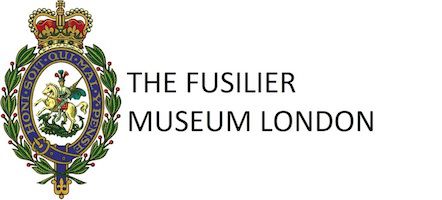The Universities’ and Public Schools’ Brigade
The Royal Fusiliers “U.P.S” Brigade was formed at Epsom, on the 11th of September 1914 by the public schools’ and universities’ men’s force. Official advertising for the brigade began on the 10th August 1914 for junior officers. Rapidly, this extended to cadets and ex-cadets, university students and young men of excellent physique and a solid education. The chairman of the U.P.S Brigade believed it was in their best interest for the recruits to sign up with men they could relate to. The battalion then split the recruits into further companies. The campaign seemed successful as it exceeded the desired number of recruits within eleven days. Over a period of time, the brigade allowed ex-soldiers up to the age of 45 and ex-non-commissioned officers up to the age of 50. All in all, the brigade raised a regiment of five battalions, 1000 recruits for each. Their motto stood as; For King, country and school.
Private P.N. Wright
Philip Noel Wright was born in 1896 and lived until 11th August 1980, dying at the age of 84. During his time as a soldier, he made rough notes of his involvement in the First World War. After he was injured, he had time in hospital to write his words in full and compile them into a book entitled Adventures in France. His accounts of war, and in particular the Battle of the Somme, were passed onto his granddaughter, to be used for a school project on World War One. The diary was transcribed by Wright’s grandson-in-law.
Private Wright was in the 21st Battalion of the Royal Fusiliers, and his division first served in 1915; his journal describes his first struggles as a soldier as he travels to France in November. The diary occasionally lingers on the more trivial difficulties of his life; for example here, he says, “We were hoping for a very short march to our quarters. We were to be disappointed.”
The Battle of the Somme
The Battle of the Somme, it seems, stopped Wright from dwelling on small things like when his next bath was; he writes, “I thought if this was to be the usual routine, trench life was not so bad as painted. As I grew older – I learnt,”. He describes a scene where many of his comrades were lying dead or wounded. Wright himself survived this first wave of the battle, which began on the 1st July 1916. It wasn’t until 26th September that he was wounded at Thiepval . He didn’t remain in France long enough to witness Britain’s victory on the 18th November. On October 16th, he was finally allowed to return home, after an injury that left shrapnel in his left thigh.
The 21st battalion served at the front line in the division’s attack on Beaumont Hamel. By the end of the first day, the public schools battalion suffered 522 causalities. The Battalion was dissolved in February 1918.
Listen to the groups recording here:
